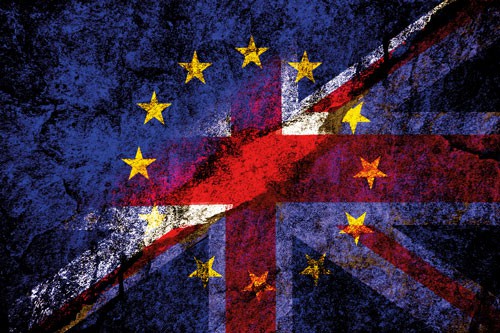
As the clock ticks down to just 90 days until a potential no-deal Brexit on 31 October, there are still no contracts in place for the extra ferries which could help guarantee medicines supplies into the UK.
Since becoming prime minister two weeks ago, Boris Johnson and his new cabinet have been ‘turbo-charging’ plans for a no-deal Brexit, and yesterday provided a hefty £434 million in new funding to ensuring continuity of vital medicines and medical products.
The government says this will cover freight transport, warehousing and stockpiling of medicines – nevertheless the UK Biotech Industry Association (BIA) say many of the most vital preparations are still not in place.
That’s because there are still no signs of ferry companies winning contracts to lay on extra services – or even that these contracts have been put out to tender.
This is of course the third time the UK has approached a Brexit deadline: the original deadline being 29 March 2019, which was then extended to 12 April, and now 31 October.
Amid the chaos and confusion of no-deal planning, the most infamous episode was the government’s £13.8m contract with Seaborne Freight – a deal which collapsed into farce when it emerged that the company owned no ferries.
The plan had been to run a freight service between Ramsgate and Ostend, Belgium in the event of a no-deal, providing extra capacity beyond the main Dover, Folkestone and Calais routes which could experience significant delays if new customs arrangements are strictly observed by the French authorities.
The rushed procurement process eventually cost the taxpayer £85m, including legal action from Eurotunnel, because it had not been considered in the tendering process.
Stung by the failure of its initial ferry plans, the government is being more cautious on this occasion – instead of agreeing contracts, it has instead reserved ‘options’ with ferry companies for extra capacity.
However the life sciences sector says there is precious little time remaining to make the necessary arrangements.
“The announced £434 million for medicines and medical products is significant investment, and recognition of the work of DHSC in this area, however we now need the detail of how the money will be spent,” a spokesman for the BIA said.
“Will the Government now be procuring ferries and not “options” for ferries? BIA has stressed before that having freight capacity for medicines and medical devices in place on 1 November is fundamentally important for the continued supply of medicines to NHS patients in the case of a ‘no deal’ Brexit.”
The BIA adds that routes need to be known in advance of 1 November as medicines supply chains are regulated to ensure that the medicines that patients receive are safe.
The uncertainty around ferries is making the stockpiling of medicines in the UK even more important – though warehouse capacity in the run up to the Christmas period is far more scare than the original Brexit date in the spring.
EMIG, the UK industry group which represents a range of companies, including SMEs, has just announced results from its latest survey of members.
The responses showed a mixed picture in terms of companies’ readiness for a no-deal Brexit.
* 44% of EMIG Members surveyed who stockpiled medicines/medical devices prior to 29 March, have run down or are running down their stockpile
* 25% of companies have already changed the supply routes they use to import medicines
* 85% of those who have sought warehouse capacity have been able to source appropriate capacity
These results suggest that extended Brexit deadline has given companies extra time to make preparations – but will also have meant significant extra cost to businesses as well.
Above all, industry bodies like the BIA and pharma industry equivalent the ABPI say they want to avoid no-deal at all costs.
It seems the new government’s plan is either to genuinely aim for a no-deal exit, or at the very least use its threat as a means of removing the Irish backstop arrangement from the withdrawal agreement. However the EU27 says this latter tactic simply won’t work – hence why the UK currency sterling has seen its value plummet in recent days as the chances of a no-deal rise.




